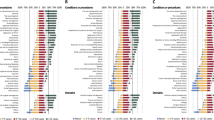Background: The purpose of this study was to assess the state of surgical training in minimally invasive surgery (MIS) within Canadian academic surgical departments. Methods: A pretested questionnaire was distributed to the general surgery residents of participating Canadian academic surgical departments. Results: Fourteen of 16 residency programs participated and 235 of 388 residents (60%) responded to the survey. Residents expect to perform both basic (217/235 [92%]) and advanced (123/234 [53%]) MIS procedures on completion of their residency. However, only 41 of 233 (18%) believed that their advanced MIS training would be adequate. On a Likert scale, the most important factors influencing their training included limited advanced case volume (median, 5), limited opportunity in the operating room (OR) (median, 5), lack of attending surgeon interest (median, 4), limited OR time (median, 4), and a lack of surgical department support (median, 4). Residents were concerned about their ability to acquire these skills once they finished their training (median, 4), and 231 of 234 (99%) thought that there was an important role for a MIS surgeon within the academic setting (median, 5). Conclusion: The rapid development of MIS has generated complex issues for resident training within the present Canadian academic surgical environment.
Similar content being viewed by others
Author information
Authors and Affiliations
Rights and permissions
About this article
Cite this article
Chiasson, P., Pace, D., Schlachta, C. et al. Minimally invasive surgery training in Canada . Surg Endosc 17, 371–377 (2003). https://doi.org/10.1007/s00464-002-8818-6
Received:
Accepted:
Issue Date:
DOI: https://doi.org/10.1007/s00464-002-8818-6




